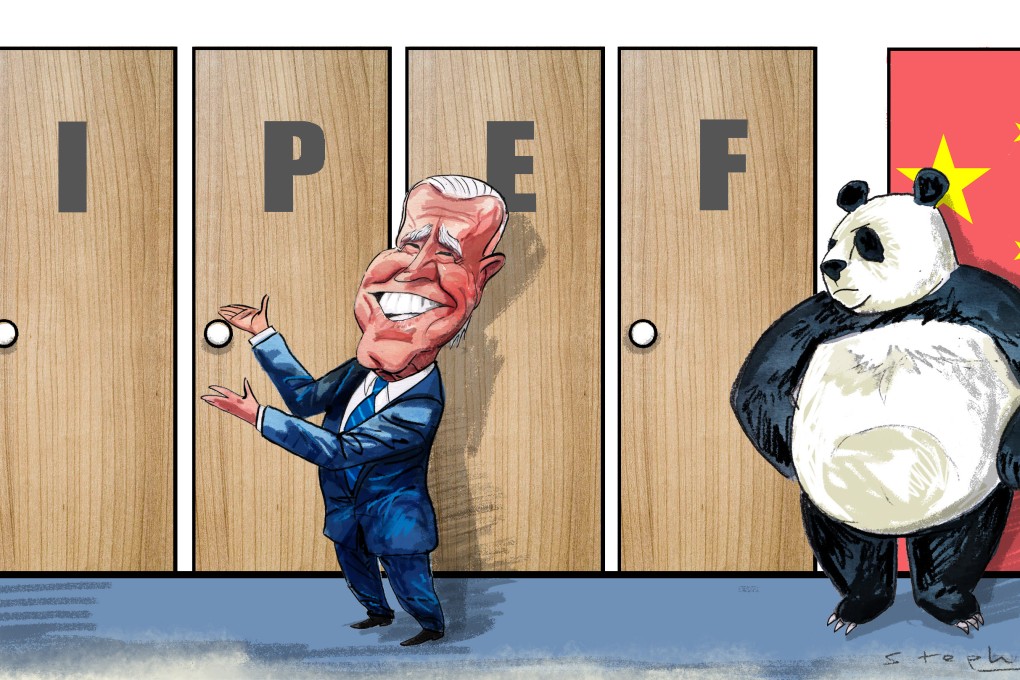Opinion | How US’ new Indo-Pacific economic strategy could edge out China’s digital silk road in Asia
- Digital trade is the top selling point of the framework, which the US is set to discuss at the Asean special summit this week. But first both sides have to tackle a big sticking point: intellectual property protection

US President Joe Biden will be hosting Association of Southeast Asian Nations leaders from May 12-13 in Washington at a special summit, signalling US efforts to engage with the Asia-Pacific amid intensifying competition with China.
Tensions between Washington and Beijing have recently been exacerbated by the launch of several Asian trade agreements, and White House language has been frank in its assessment of China’s role in the region.
For now, details on the IPEF remain vague. What is known is that it won’t carry the benefits of a free-trade agreement, seeking instead to establish trade rules across four pillars related to trade resiliency, infrastructure, decarbonisation and anti-corruption. Countries can become IPEF members by joining at least one of them.
Though still in its infancy, the IPEF is an overt balancing attempt against China and the various regional trade agreements that the US is not a part of.
